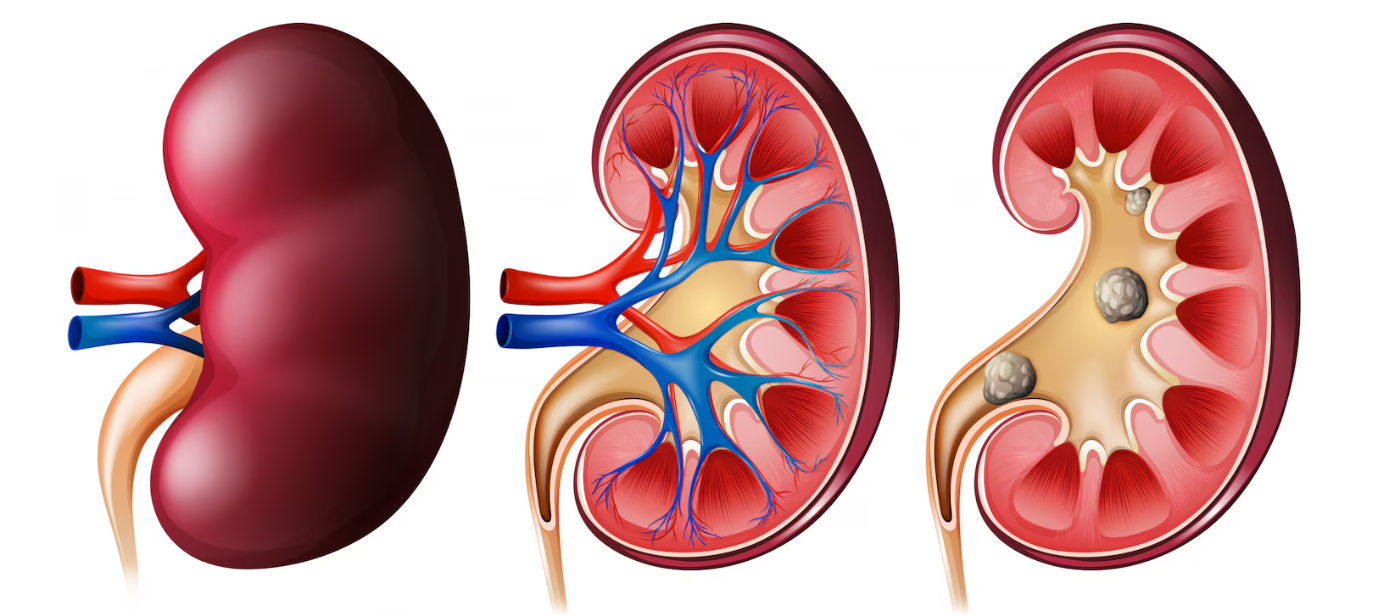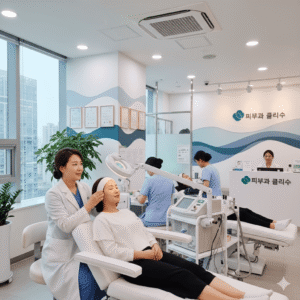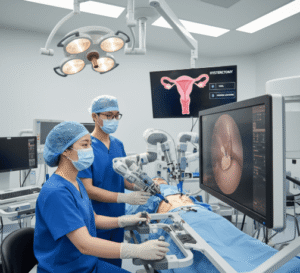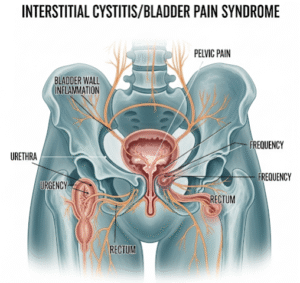Overview
Systemic sclerosis renal crisis (SRC) is a severe and potentially life-threatening complication of systemic sclerosis (scleroderma), a chronic autoimmune disease characterized by fibrosis and vascular abnormalities. SRC involves sudden onset of severe hypertension and rapidly progressive kidney failure. Prompt diagnosis and treatment are critical to prevent permanent kidney damage.
What is Systemic Sclerosis Renal Crisis?
SRC is an acute renal emergency occurring mainly in patients with systemic sclerosis. It is characterized by a sudden increase in blood pressure, acute kidney injury, and sometimes microangiopathic hemolytic anemia. Without timely treatment, it can lead to end-stage renal disease and increased mortality.
Symptoms
- Abrupt onset of severe hypertension
- Headache
- Visual disturbances
- Fatigue and weakness
- Shortness of breath
- Reduced urine output
- Swelling (edema)
- Signs of kidney failure (e.g., nausea, confusion)
Causes
- Vascular injury and narrowing of small renal arteries in systemic sclerosis
- Immune system dysregulation leading to fibrosis and vascular damage
- Certain medications such as high-dose corticosteroids can increase risk
Risk Factors
- Diffuse cutaneous systemic sclerosis subtype
- Early-stage systemic sclerosis (within first 4 years)
- Rapid skin thickening progression
- Use of corticosteroids
- Presence of anti-RNA polymerase III antibodies
Complications
- Acute kidney injury progressing to renal failure
- Hypertensive emergencies including stroke or heart failure
- Microangiopathic hemolytic anemia
- Need for long-term dialysis or kidney transplant
- Increased risk of mortality if untreated
Prevention
- Regular monitoring of blood pressure and kidney function in systemic sclerosis patients
- Avoidance or cautious use of high-dose steroids
- Early recognition of symptoms and urgent medical evaluation
Treatment Options in Korea
South Korea offers comprehensive care for SRC in specialized rheumatology and nephrology centers:
- Diagnosis and Monitoring
- Frequent blood pressure monitoring
- Blood and urine tests to assess kidney function
- Autoantibody testing including anti-RNA polymerase III
- Medications
- ACE inhibitors (e.g., captopril) are the cornerstone of treatment to control blood pressure and protect kidneys
- Dialysis in cases of severe renal failure
- Careful management of fluid and electrolytes
- Hospital Care
- Intensive monitoring in hospitals for blood pressure control and kidney support
- Multidisciplinary approach involving rheumatologists, nephrologists, and critical care specialists
- Follow-up and Support
- Regular follow-up for blood pressure and kidney function
- Counseling on disease management and lifestyle modifications
- Advanced Treatments
- Kidney transplantation for eligible patients with end-stage renal disease
- Participation in clinical trials for novel therapies available at centers such as Samsung Medical Center and Seoul National University Hospital













